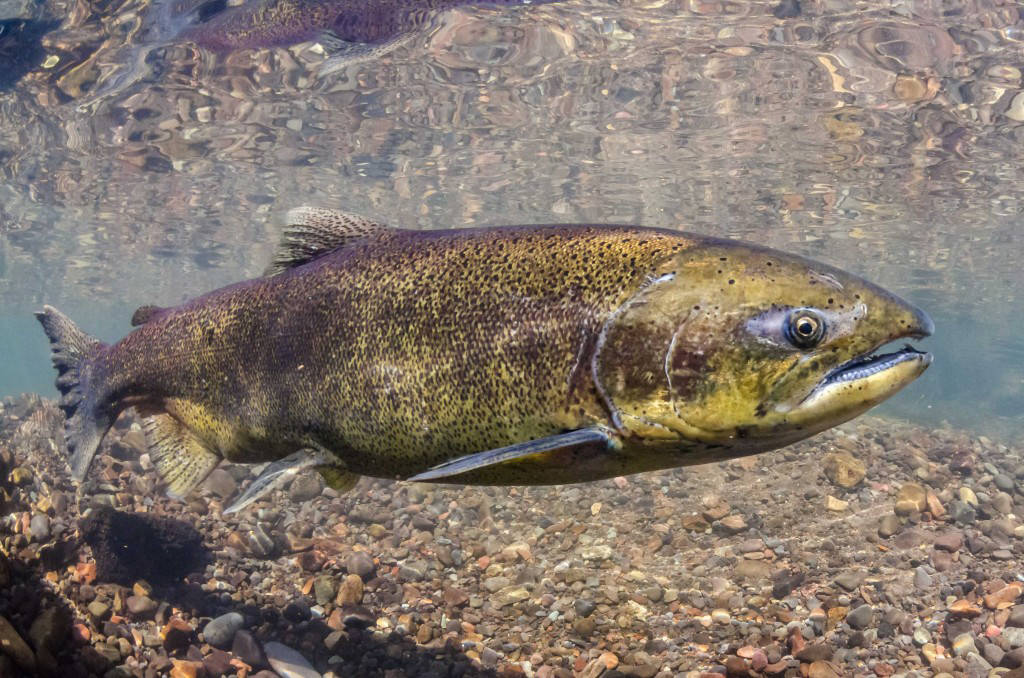Submitted by Kwiaht
For a third year, salmon researchers from the Lopez Island-based nonprofit Kwiaht will be staffing winter Blackmouth fishing derbies to help clean fish, collect gut contents, and learn more about the diet and health of these iconic resident Chinook salmon.
“Smaller and fewer Blackmouth salmon is a concern for Southern Resident Killer Whales as well as our fishing community,” says Kwiaht director Russel Barsh, who has been studying the changing diet of Chinook salmon for over a decade. “We want to find the bottleneck in the food web so that it can be addressed while there is still a good chance for Blackmouth recovery.”
Blackmouth sampled at derbies in 2018 and 2019 had mainly eaten Pacific herring, Barsh says; “nearly four-fifths by dry weight of what we found in 324 Blackmouth.” All other fish made up barely three percent of the diet. When they did not find herring, Blackmouth sampled in 2018-2019 mainly ate shrimp. Few squid were found in gut contents, although Blackmouth were hitting lures that mimic squid. “We were surprised to see hardly any Pacific Sand Lance in these salmon,” Barsh adds. “Sand Lance can be almost half the diet of juvenile Chinook in the islands, but it looks like they eat proportionately more herring as they grow larger.”
Results of the first two winters of this study indicate that Blackmouth depend on schools of juvenile herring that swarm around the islands’ nearshore waters for two or three years before migrating into deeper ocean waters to mature. Herring numbers in the Salish Sea have declined for decades and spawning biomass varies greatly from year to year. Juvenile herring abundance in the islands last peaked in 2016 according to Kwiaht monitoring data. “What we are seeing now is prey restriction,” Barsh says. “Blackmouth are scouring the islands for balls of small herring and often finding balls of shrimp instead, which are more work for fewer calories.”
Barsh says there is some hope that Blackmouth will take advantage of Northern Anchovies and other greasy schooling fish that are colonizing the Salish Sea as it grows warmer. “Whether they will recognize these fish as food remains in question.” In January 2019, Blackmouth feasted on a rare school of Capelin in the islands for several days. “We were just incredibly fortunate that there were anglers there to collect specimens for us, or this hopeful event would probably have been missed completely.”
Kwiaht’s research is supported by grants from the National Fish and Wildlife Foundation’s Southern Resident Killer Whale Conservation program, and collaborators at NOAA, the University of Washington, Long Live the Kings and Washington Department of Fish and Wildlife.
Blackmouth fishing derbies in our area this winter include the Resurrection Salmon Derby – Anacortes, Feb. 1-2, Friday Harbor Classic, Feb. 6-8, and the Roche Harbor Classic, Feb. 13-15. Look for researchers with green Kwiaht ASK ME caps at derby weigh-in stations, and write to info@kwiaht.org for further information on participating in Blackmouth research.



